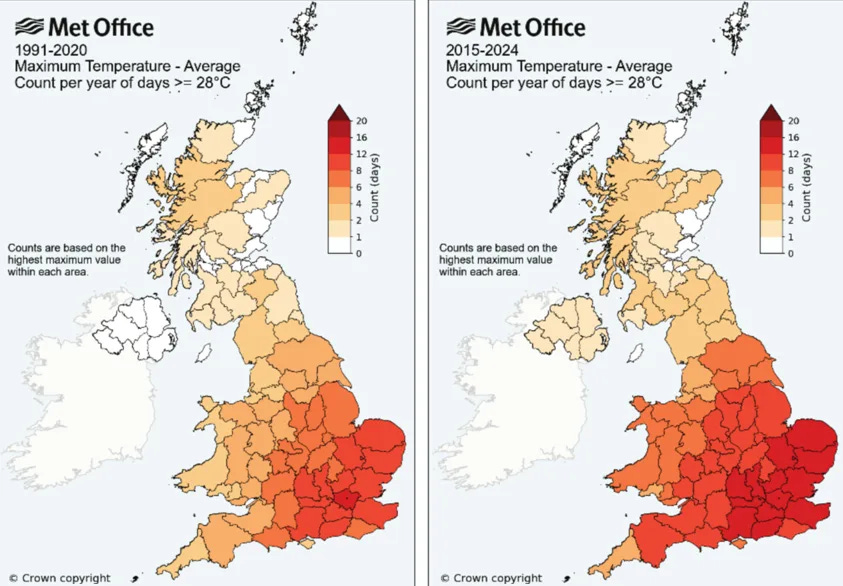Smarter ESOS Strategy: Future-Proof Your Reporting Without Reinventing the Wheel
Prepared by: José Hopkins, Sustainability Consultant at Acclaro Advisory and Gus Walters, Sustainability Analyst at Acclaro Advisory.
Sustainability reporting is evolving, fast.
Over the past six years, businesses have seen a steady rise in expectations around climate, energy, and sustainability disclosures.
From SECR to ESOS, and now the UK’s proposed Sustainability Reporting Standards (UK SRS S1 & S2), the list of acronyms is growing.
But here’s the reality for many:
You’re doing ESOS Phase 3.
You’re preparing for SECR.
You’re hearing about TCFD, UK-CFD, UK SRS S1/S2, IFRS S2, and net zero.
And none of it feels connected.
Let’s fix that.
What’s changing in ESOS for 2025 and beyond?
Following delays to the rollout of Phase 3, the UK Government confirmed that:
The Net Zero elements originally planned for ESOS Phase 4 have been postponed to Phase 5, to give organisations more time to prepare.
But this delay shouldn’t delay your preparation.
“If your business is already preparing for ESOS, now is the perfect time to build a reporting approach that aligns with what’s coming and avoids unnecessary duplication across frameworks” - Gus Walters Sustainability Analyst at Acclaro.
Future-proofing starts with smart integration
Here’s how your energy and sustainability reporting can be joined up, saving time and cost:
These aren’t separate silos. Done right, they can share data, processes, and insights.
Our approach at Acclaro
At Acclaro Advisory, we help clients avoid duplication, identify efficiencies, and align frameworks to reduce cost and increase confidence.
Our advice is simple:
Use ESOS Phase 4 to your advantage
Build a carbon baseline and energy system that can feed SECR and UK SRS too.Connect finance and sustainability
Start breaking silos between your ESG, compliance, and finance teams now.Plan ahead for Phase 5
Don’t wait until net zero becomes a requirement, start assessing now how to integrate it pragmatically into your reporting roadmap.
“Most organisations we work with already hold the data they need, the challenge is using it effectively across the growing set of disclosure requirements. ESOS Phase 4 is a real opportunity to build a foundation that supports net zero, SECR, and UK SRS without adding complexity.” – Jose Hopkins ACA, Senior Sustainability Consultant at Acclaro Advisory
Aligning with UK SRS and IFRS S2: What’s different?
The new UK SRS S1 and S2 exposure drafts are closely aligned to the global IFRS S1/S2 standards, focused on climate-related financial risk.
Four of the five warmest summers on record for England have occurred since 2003, Met Office data shows, suggesting we are in a period of intensifying hot weather.
While ESOS is focused on energy efficiency, UK SRS S2 will demand greater clarity on:
Scenario planning and climate risks
Governance and controls
Emissions targets and performance
But the connection point is clear:
Energy and emissions data is the backbone. One robust dataset can serve multiple frameworks , if you plan now.
Final thought
Don’t let the delay to net zero requirements in ESOS Phase 5 lull your business into a passive stance.
Now is the time to build the foundations, align your energy reporting, engage finance early, and avoid unnecessary duplication later.
Need help building a smarter, leaner reporting strategy?
Get in touch and visit website at Acclaro Advisory, or reach out to me at jose.hopkins@acclaro-advisory.com
If you're leading climate, audit, or sustainability strategy subscribe for weekly, grounded insights on how to embed credibility into your next decision.
Share this with your finance leads, auditors, or ESG professionals under pressure to deliver clarity and cut complexity.
Acronyms Glossary
ESOS – Energy Savings Opportunity Scheme
SECR – Streamlined Energy and Carbon Reporting
UK SRS – UK Sustainability Reporting Standards
IFRS S1 – IFRS Sustainability Disclosure Standard 1 (General Requirements)
IFRS S2 – IFRS Sustainability Disclosure Standard 2 (Climate-related Disclosures)
ISSB – International Sustainability Standards Board
GHG – Greenhouse Gas Emissions
Net Zero – Achieving a balance between emissions produced and emissions removed







